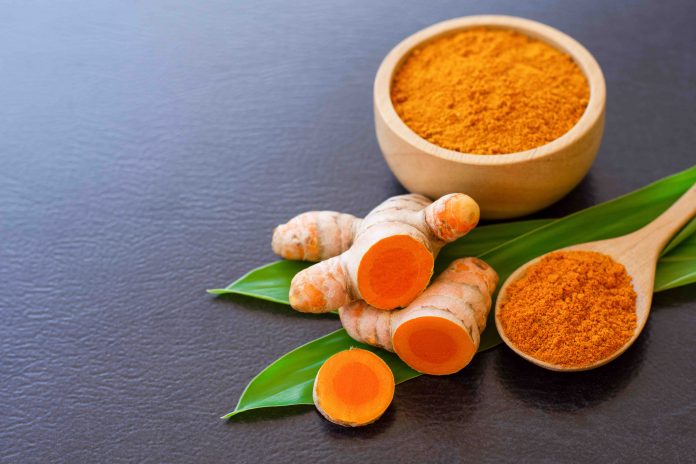The bright yellow-orange spice, turmeric, from the flowering plant, Curcuma longa, is most commonly used in Indian and other Asian cuisines and is a primary ingredient in curry powder.
Its major active component is curcumin, and it’s the activities of this family of active compounds within turmeric, curcuminoids, that give the spice its therapeutic properties.[1] In fact, it’s curcumin that has powerful antioxidant and anti-inflammatory properties.[2]
Turmeric has historically been used in Ayurvedic medicine, the system of traditional medicine native to India.[3] It’s also used in Eastern Asian medical systems, such as traditional Chinese healing.[4]
“Some people like to use it in food, but unless it’s in a fatty substance, so, in casseroles and [the like], it’s poorly absorbed,” community pharmacist and master herbalist Gerald Quigley said of turmeric.
“It’s poorly absorbed from the gut unless it’s in an oil or it has some black pepper to help the absorption. So, the better turmeric extracts these days have been modified to make them [more readily digested].”
This is among the reasons, particularly when the goal is therapeutic, that turmeric supplements may be a better option compared with opting for turmeric within food.
The health benefits of turmeric include its anti-inflammatory, antioxidant, and anti-bacterial properties. It’s also said to aid digestive issues and improve skin health.
“Turmeric is promoted as a dietary supplement for a variety of conditions, including arthritis, digestive disorders, respiratory infections, allergies, liver disease, depression, skin issues and many others,” the US National Centre for Complementary and Alternative Medicine said.4
Mr Quigley says turmeric is used for “joint health and osteoarthritis” due to its “anti-inflammatory properties”. Being an anti-inflammatory, he adds, it’s used in “any disease involving inflammation”.
“Turmeric has huge benefits, and one of them is [for] diabetes,” he continued. “Turmeric has been used [for] diabetes in Ayurvedic medicine and traditional Chinese medicine. So, anything that reduces inflammation is worthwhile – any disease that responds to higher levels of inflammation. So, diabetes, liver issues, gut issues, brain issues, blood pressure – all can be helped by reducing inflammation, which is what turmeric does.”
Commenting on the indications for turmeric supplement use, Mr Quigley says there are “lots of reasons” why someone may be recommended this option. This may include someone who says their blood pressure means they can’t use a non-steroidal anti-inflammatory drug (NSAID), or someone who says they’re using an NSAID and are still in pain but their doctor warns against increasing the dose. A turmeric supplement can be suggested in such cases “as an adjunctive therapy for inflammatory issues in joints – it’s perfect”.
Mr Quigley says that, on average, a turmeric supplement will show an effect within about three to four weeks, “but everybody’s different”.
In addition to capsule form, turmeric supplementation can also be used in powder form as an “external anti-inflammatory rub”, he says, which can be applied to conditions such as mouth ulcers, for example.
“I say to people to go and buy turmeric powder [and] mix it with some Vaseline,” he said. “It’s actually helpful in wound healing.”
Turmeric supplements may be used daily, Mr Quigley adds, particularly by those who are active and have begun to experience arthritic joint pain.
“My rationale here is that you [can] use the turmeric every day, and I prefer capsules that are taken twice a day,” he said. “And then, for breakthrough pain, use the [NSAID] for a couple of days. That means you can play golf better, or you can walk with your mates a little further than you normally would do. That makes a big difference.”
References:
- healthline.com/nutrition/top-10-evidence-based-health-benefits-of-turmeric#1.-Turmeric-contains-bioactive-compounds-with-medicinal-properties
- betterhealth.vic.gov.au/health/conditionsandtreatments/ayurveda#:~:text=rasa%20shastra%20medicines-,Ayurveda%20or%20Ayurvedic%20medicine%20is%20a%20system%20of%20traditional%20medicine,to%20encourage%20health%20and%20wellbeing.
This feature was originally published in the July issue of Retail Pharmacy magazine.








